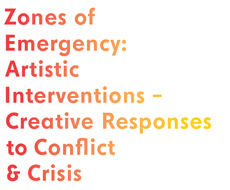tess thackara, director, survival international (USA)
lecture at ACT: september 26, 2011
popularizing the fight for indigenous rights: how using films and images can shift public opinion and change history
respondent: ute meta bauer, act associate professor, MIT
This lecture explores the work and methodology of human rights group Survival International, with a particular focus on the group’s efforts to generate a groundswell of support for tribal people all over the world. Using Survival films and campaigns as case studies, the lecture will focus on the need to popularize the narrative surrounding indigenous land rights. Tess Thackara directs the USA office of Survival International, whose major campaign successes include the Indian government banning aluminum giant Vedanta Resources from mining the sacred lands of the Dongria Kondh tribe in 2010, and the High Court of Botswana’s affirming the Bushmen’s right to access water on their ancestral lands in 2011.
Survival International

